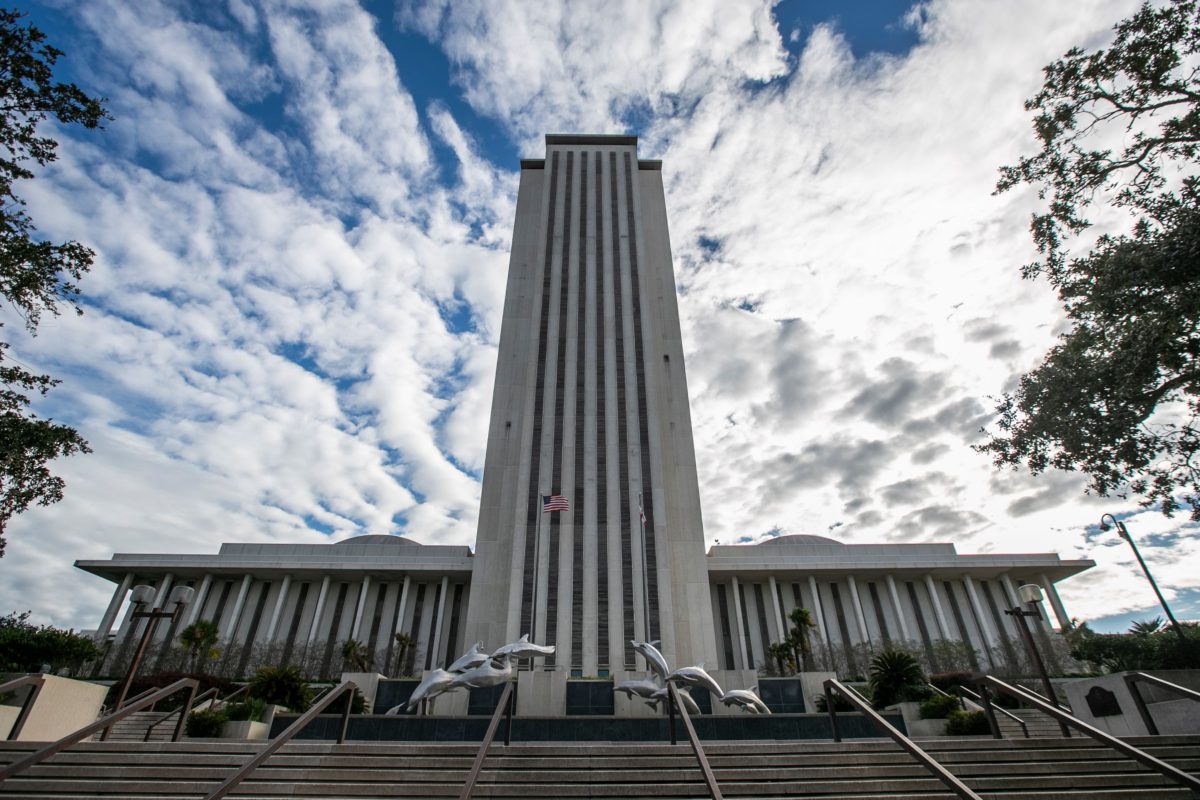Georgia Voter Suppression Law 2.0: Florida Election Bill Expands Restrictions, And Then Some

A view of the Florida State Capitol building in Tallahassee, Florida. | Source: Getty Images / Getty
The Florida GOP does not want to be outdone by Georgia. Republicans in the Sunshine State also want to ban giving out food and drinks to voters near a polling place. And then some.
The proposed H.B. 7041 expands that distance to 150 feet and includes prohibited activity giving out food and drinks. The law would prohibit giving any item to voters or interacting with them within the specified area.
This is why when you see something this grotesque you cannot allow it to take hold in even one state. Now it’s a race to the bottom. Floridians, reach out to your state reps NOW. Tell them you will not support this. https://t.co/rB0VsfzbQO https://t.co/76jbLXHD3z
— Sherrilyn Ifill (@Sifill_LDF) March 29, 2021
Sherrilyn Ifill, President and Director-Counsel for the NAACP Legal Defense Fund, called on Florida residents to contact their elected officials in opposition of the bill.
Under current state law, individuals or campaigns cannot engage in partisan activity within 100 feet of a polling location. H.B. 7041 bears a striking similarity to the recently passed voter suppression law in Georgia.
Florida Republicans rely on the same false rhetoric of simply wanting to “improve” the system of elections. But measures introduced do not enhance election integrity or voter access.
Part of Florida’s controversial elections bill echoes one of the most controversial measures in Georgia’s new law restricting voting rights: a ban on giving anything, including food and water, to people in line to vote.
Shameful. HB 7041 must be rejected.https://t.co/d4m8u2STZM
— LWV of Florida (@LWVFlorida) March 29, 2021
In addition to the ban on handing out food and drinks within 150 feet of a polling location, H.B. 7041 limits the use of drop boxes and adds additional ID requirements for mail voting among other things. There is also a measure that would require the public to witness a signature match verification process, which raises concerns about transparency and potential identity theft.
Ahead of Georgia’s Senate runoff elections in January, Georgia’s secretary of state compared “line warming” to prohibited partisan activity, claiming that those who took part in such actions — “warming up the people in line to your position as you give them free pizza, for example” — could be guilty of a felony.
This is exactly why line warming exists — but meanwhile the SOS wants to charge folks with a felony for handing out water, food, umbrellas, ponchos, chairs to voters who are stuck in line. The goal should be finding ways to reduce lines, not criminalizing groups trying to help. https://t.co/I1SGB0hsno
— Bee Nguyen
(@BeeForGeorgia) December 31, 2020
Giving out comfort items has become a part of civic engagement and get-out-the-vote activities for non-partisan groups across the country. While federal law prohibits giving or receiving something of value for casting or withholding a vote, the practice of line warming often is done in support of anyone in the vicinity of a polling location, not just voters.
Providing comfort to those waiting in long lines is as much about encouraging civic engagement in communities impacted by long lines as it is about providing comfort to those waiting.
National efforts to supply food and drinks to voters, like Pizza to the Polls and Chefs For the Polls led by celebrity chef José Andrés, are not contingent upon voting or belonging to a particular political party.
Don’t worry Georgia, we’ve got plenty of pizza headed your way this week! We’ll be sending
to vaccine sites in Atlanta. See you there! https://t.co/JoMqWVTZlU #VaxAndSnacks pic.twitter.com/8bJCBE4pO2
— Pizza to the Polls (@PizzaToThePolls) March 29, 2021
In a recent statement posted on Twitter, Pizza to the Polls reaffirmed its commitment to “delivering food to people participating in civic life, no matter their political affiliation.” The organization recently expanded its effort to serve vaccination sites with long lines.
Instead of addressing the long lines and issues with poll closures and consolidations, Republicans are taking aim at a nonpartisan civic engagement activity. By comparing nonpartisan civic engagement activities and political campaign efforts, Republicans are conceding they view voting rights, civic engagement, and by extension democracy as a partisan effort.
Anoa Changa is a movement journalist and retired attorney based in Atlanta, Georgia. Follow Anoa on Instagram and Twitter @thewaywithanoa.
SEE ALSO:
‘That’s the Failsafe’: Georgia’s New Voting Law Does What Trump Couldn’t
[ione_media_gallery id=”3835568″ overlay=”true”]

